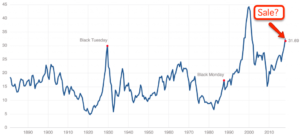Update: As per court decision in early 2018, the new fiduciary rules detailed below were struck down in court and no longer apply; however, reading through this article still provides some valuable insights on why you need to protect yourself from conflicts of interest from financial advisors, and why expanding your personal finance and investment knowledge could ultimately help reduce dependency on an advisor by being independent from him/her.
Last week brought big news in the financial industry when the U.S. Department of Labor issued its fiduciary standard rule intended to safeguard retirement investors from conflict of interest when receiving advice (through breach of contract risks if they do not follow recommendations), starting April 2017. If you’ve got some time on your hands and would like a thorough overview, here is the full DOL rule on fiduciaries.
What could this change entail for you? According to estimates by the White House, middle class investors have lost on average an estimated 1% in returns due to advisers encouraging them to choose lesser products that often carry higher commissions and against their client’s best interests. Over time these losses add up significantly.
Though I believe the new fiduciary rule to be beneficial, it would be wise not to put too much faith in its ability to protect your investments on its own.
Starting off, the new fiduciary rule only applies to self-directed retirement accounts such as 401K’s and IRA’s. Elsewhere, advisers will still adhere to a far less stringent “suitability standard”, rather than providing advice in accordance with client best interests (as would be required under “fiduciary standard”). Simply put – as long as they don’t sell you anything like sea monkey futures contracts or Saskatchewan beaver pelt derivatives they should likely be able to suitably justify and get away with it in non-retirement accounts.
Simply because a fiduciary standard exists doesn’t guarantee its enforcement by all professionals in the financial industry; loopholes will undoubtedly exist and loopholes (legal or otherwise) will be exploited; we have seen time after time how the financial industry uses any available loopholes to extract profits from unsuspecting victims while at the same time trying to increase compensation packages of individuals involved in its administration.








+ There are no comments
Add yours